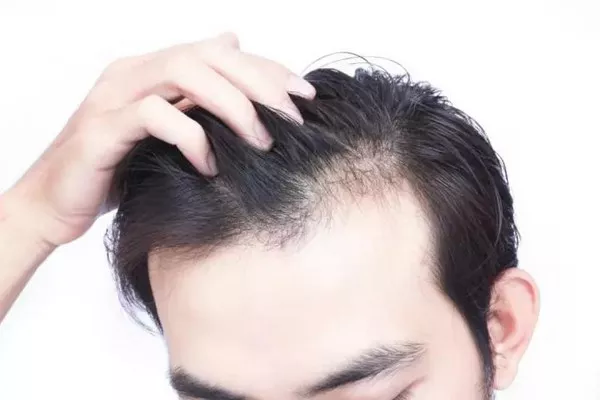Our hormones play a critical role in regulating various bodily functions, including hair growth and health. When hormones become imbalanced, it can have a significant impact on our overall well-being, including the condition of our hair. In this article, we will explore the relationship between hormonal imbalance and hair loss, identify common signs of hormonal disruption, and discuss potential solutions to address this issue and restore healthy, luscious locks.
1. The Role of Hormones in Hair Health
Hormones are chemical messengers that control numerous processes within the body, including hair growth and loss. Specific hormones, such as estrogen, progesterone, testosterone, and thyroid hormones, have a direct impact on the hair growth cycle. When these hormones are in balance, hair remains healthy and vibrant. However, when imbalances occur, it can lead to various hair-related issues.
2. Hair Loss and Hormonal Imbalance: The Connection
Hormonal imbalances can lead to several types of hair loss, including:
a. Androgenetic Alopecia: Also known as male or female pattern baldness, androgenetic alopecia is one of the most common forms of hair loss related to hormonal imbalance. In this condition, the hair follicles become sensitive to dihydrotestosterone (DHT), a derivative of testosterone. This sensitivity leads to the miniaturization of hair follicles, causing hair to become thin and eventually leading to hair loss.
b. Telogen Effluvium: Hormonal disruptions caused by factors such as stress, childbirth, or changes in birth control can trigger telogen effluvium. During this condition, an increased number of hair follicles enter the resting (telogen) phase simultaneously, leading to excessive shedding and temporary hair loss.
c. Thyroid-related Hair Loss: Thyroid hormones play a crucial role in regulating metabolism and overall body function. An underactive thyroid (hypothyroidism) or overactive thyroid (hyperthyroidism) can disrupt the hair growth cycle and lead to hair thinning and loss.
3. Signs of Hormonal Imbalance
Identifying the signs of hormonal imbalance can help individuals seek timely intervention and address hair loss effectively. Common signs of hormonal disruption include:
a. Hair Thinning: Gradual thinning of hair, particularly around the crown and temples, may indicate androgenetic alopecia or hormonal fluctuations.
b. Excessive Hair Shedding: If you notice an unusually high amount of hair on your pillow, hairbrush, or in the shower drain, it may be a sign of telogen effluvium or other hormonal imbalances.
c. Irregular Menstrual Cycles: For women, irregular periods or changes in menstruation patterns may suggest hormonal disruptions that can impact hair health.
d. Acne and Skin Issues: Hormonal imbalances can lead to increased acne breakouts and other skin problems.
e. Mood Swings and Fatigue: Hormonal fluctuations can contribute to mood swings, irritability, and persistent fatigue.
f. Weight Changes: Unexplained weight gain or loss can also be associated with hormonal imbalances.
g. Cold Intolerance or Heat Sensitivity: Thyroid-related hormonal imbalances can manifest as feeling unusually cold or experiencing heat sensitivity.
4. Underlying Causes of Hormonal Imbalance
Hormonal imbalances can be caused by various factors, including:
a. Stress: Chronic stress can disrupt the balance of hormones, leading to hair loss and other health issues.
b. Pregnancy and Postpartum: Hormonal fluctuations during pregnancy and after childbirth can cause temporary hair loss known as postpartum hair shedding.
c. Menopause: As women approach menopause, declining levels of estrogen and progesterone can lead to hormonal imbalances that affect hair health.
d. Polycystic Ovary Syndrome (PCOS): PCOS is a common hormonal disorder in women, characterized by imbalanced hormone levels and various symptoms, including hair loss.
e. Thyroid Disorders: Hypothyroidism and hyperthyroidism can disrupt the hair growth cycle, leading to hair loss.
5. Seeking Professional Diagnosis
If you suspect hormonal imbalances are contributing to your hair loss or experiencing any of the signs mentioned earlier, it is essential to seek professional medical advice. A healthcare provider can perform tests to assess hormone levels and identify any underlying conditions that may be causing the imbalance.
6. Addressing Hormonal Imbalance and Hair Loss
Effective management of hormonal imbalance-related hair loss involves addressing the root cause and adopting appropriate treatments. Depending on the specific condition, solutions may include:
a. Hormone Therapy: For certain hormonal conditions like PCOS or menopausal symptoms, hormone therapy may be recommended to restore balance.
b. Stress Management: Practicing stress-reduction techniques, such as mindfulness, meditation, and exercise, can help stabilize hormone levels and promote hair health.
c. Thyroid Medications: For thyroid-related hair loss, medications to regulate thyroid function may be prescribed.
d. Scalp Treatments: Topical treatments, such as minoxidil, can promote hair growth and combat hair loss.
e. Nutritional Supplements: Ensuring an adequate intake of essential vitamins and minerals, such as biotin, zinc, iron, and vitamin D, can support overall hair health.
f. Lifestyle Changes: Adopting a healthy lifestyle that includes a balanced diet, regular exercise, and sufficient sleep can positively impact hormonal balance and hair growth.
Conclusion
Recognizing the connection between hormonal imbalance and hair loss is crucial in addressing this common concern. Whether it’s androgenetic alopecia, telogen effluvium, or thyroid-related hair loss, hormonal imbalances can significantly impact the health and appearance of our hair. By identifying the signs of hormonal disruption and seeking professional medical advice, individuals can take proactive steps towards restoring hormonal balance and promoting healthy, vibrant hair. With the right approach and proper care, it’s possible to regain confidence in our locks and embrace hair health from the inside out.

